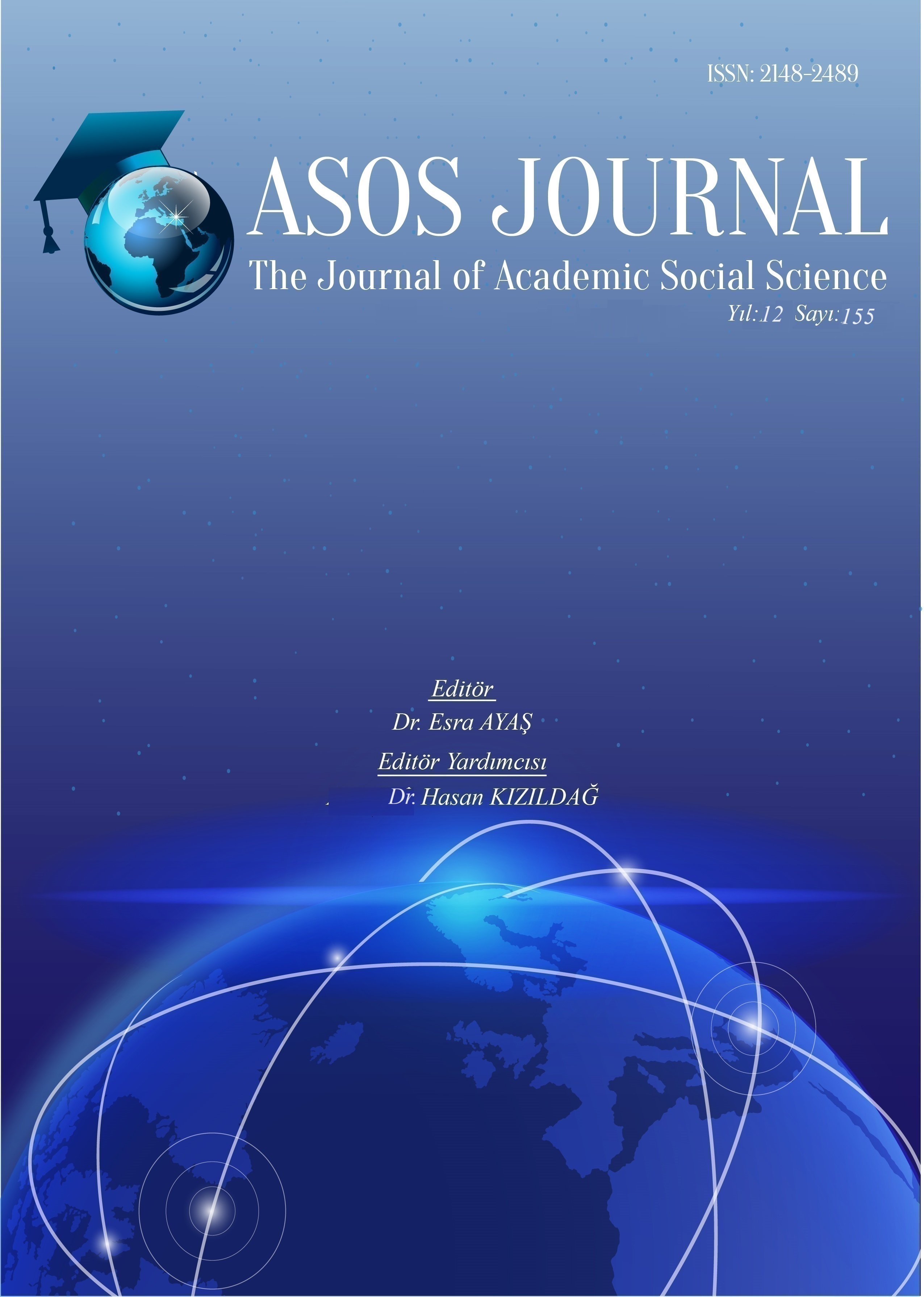Author :
Abstract
Sosyal bir canlı olarak insan yaşamında kişisel deneyimler, çevresel faktörler, sosyal toplum yapısı ve davranış modelleri, topluluk ve aile modelleri gibi birçok faktör kişinin gelişimi ve yaşamında belirleyici unsurlar olabilmişlerdir. Kişiliğin oluşum ve gelişim sürecinde pedagojik yaklaşımlar, etkiler çocukluk ve gençlik yıllarında yaşanan hemen her olay ileriki yaşlarda insan yaşamında etkilerini çeşitli şekillerde gösterebilmektedir. Pedagoji disiplini, öğrenme metotları ve mükemmel çocuk yetiştirme yöntemleri üzerine gelişim gösterirken, antropedagoji de yardımcı bir dal olarak geçmişe dönük verileri inceleyerek geçmişte yapılan hataları tekrarlamamak adına pedagoji disiplinine destek olmaktadır. Bu çalışmada, W. A. Mozart’ın (1756-1791) çocukluk ve gençlik yıllarındaki gelişim sürecine bakılarak, bu incelemeden elde edilecek bulgular ışığında, öğrencilerimizin müzik eğitimleri süreci içinde pedagojik gelişimlerini pozitif etkileyebilecek işlevsel bilgiler edinmek amaçlanmıştır. Araştırma, Mozart’ın çocukluk ve gençlik yılları içindeki pedagojik gelişimi, babasının onun üzerindeki etken rolü ve onun müzikal yaşamına olan etkilerini genel hatlarıyla kapsamaktadır. Çalışmada literatür tarama yöntemi kullanılmıştır. Çeşitli kaynaklardan edinilmiş olan bilgiler ışığında Mozart’ın müzikal duygu durumu, bize gelecekte de faydalanabileceğimiz antropedagojik bilgiler sağlamıştır. Araştırmada, ebeveynlerin çocukları üzerindeki başarı beklentileri, mükemmeliyetçilik ve bunun yarattığı baskılar sebebiyle çocukların; yaşamsal sıkıntılar, değersizlik ve başarısızlık gibi duygular yaşayabileceği tespit edilmiştir. Bu durum, Mozart ve babasının ilişkileri üzerinden örneklenerek, öznenin (çocuğun) gelişiminde başarı ve mutluluk dengesine odaklanılmasının pozitif katkılar sağlayabileceği yaratabileceği sonucuna varılmıştır.
Keywords
Abstract
In human life as a social creature, many factors such as personal experiences, environmental factors, social community structure and behaviour models, community and family models have been determining factors in the development and life of the person. In the process of formation and development of personality, pedagogical approaches, effects of almost every event experienced in childhood and youth can show their effects on human life in various ways in later ages. While the discipline of pedagogy develops on learning methods and perfect child rearing methods, anthropedagogy, as an auxiliary branch, supports the discipline of pedagogy in order not to repeat the mistakes made in the past by examining retrospective data. The aim of this study is to analyse the developmental process of W. A. Mozart (1756-1791) during his childhood and youth, and in the light of the findings of this study, to obtain functional information that can positively affect the pedagogical development of our students in the process of music education. The research covers Mozart's pedagogical development during his childhood and youth, the influential role of his father on him and the effects on his musical life in general terms. Literature review method was used in the study. In the light of the information obtained from various sources, Mozart's musical emotional state has provided us with anthropedagogical information that can be utilised in the future. In the study, it was determined that children may experience feelings such as vital difficulties, worthlessness and failure due to parents' expectations of success, perfectionism and the pressures created by this. This situation was exemplified through the relationship between Mozart and his father, and it was concluded that focusing on the balance of success and happiness in the development of the subject (child) can make positive contributions.





